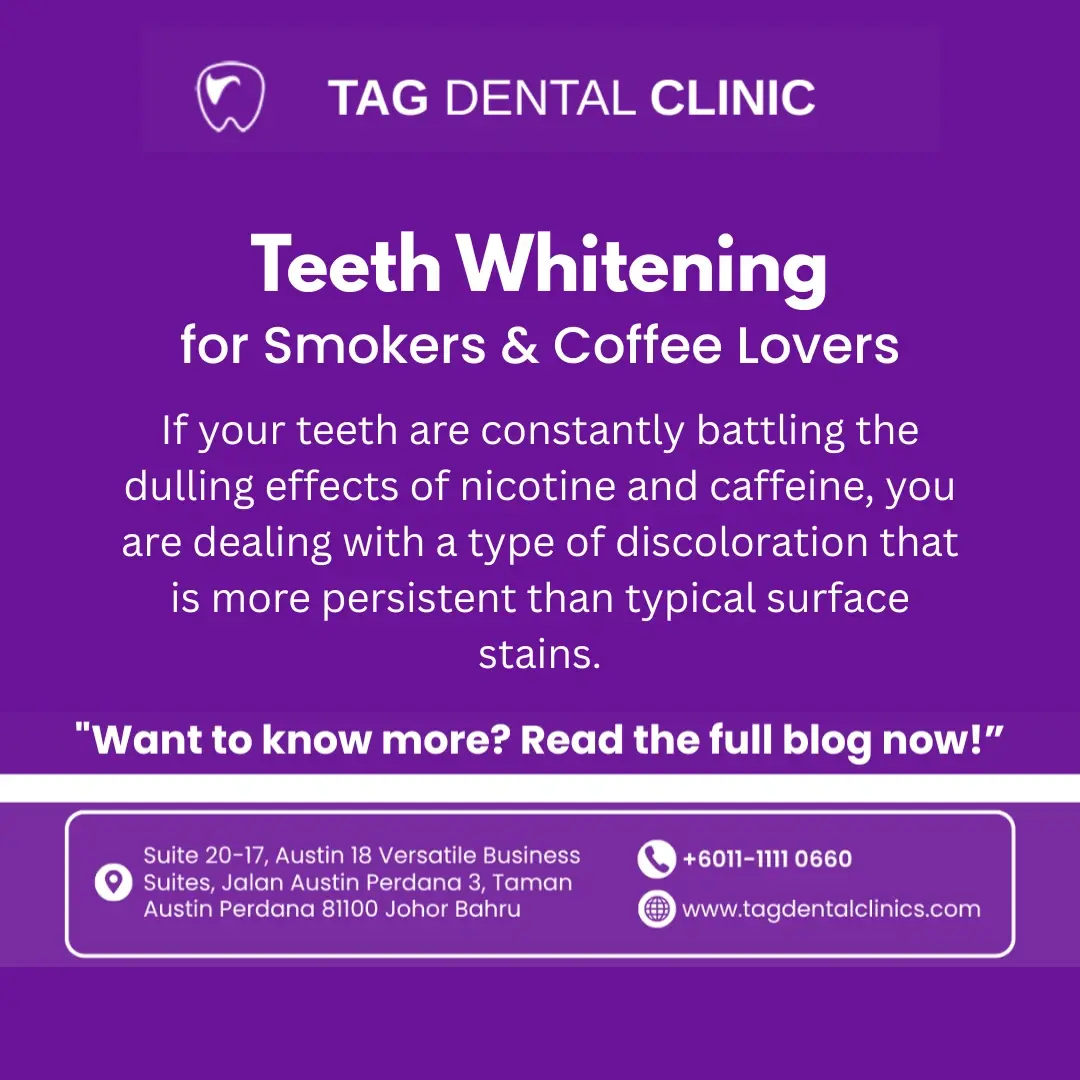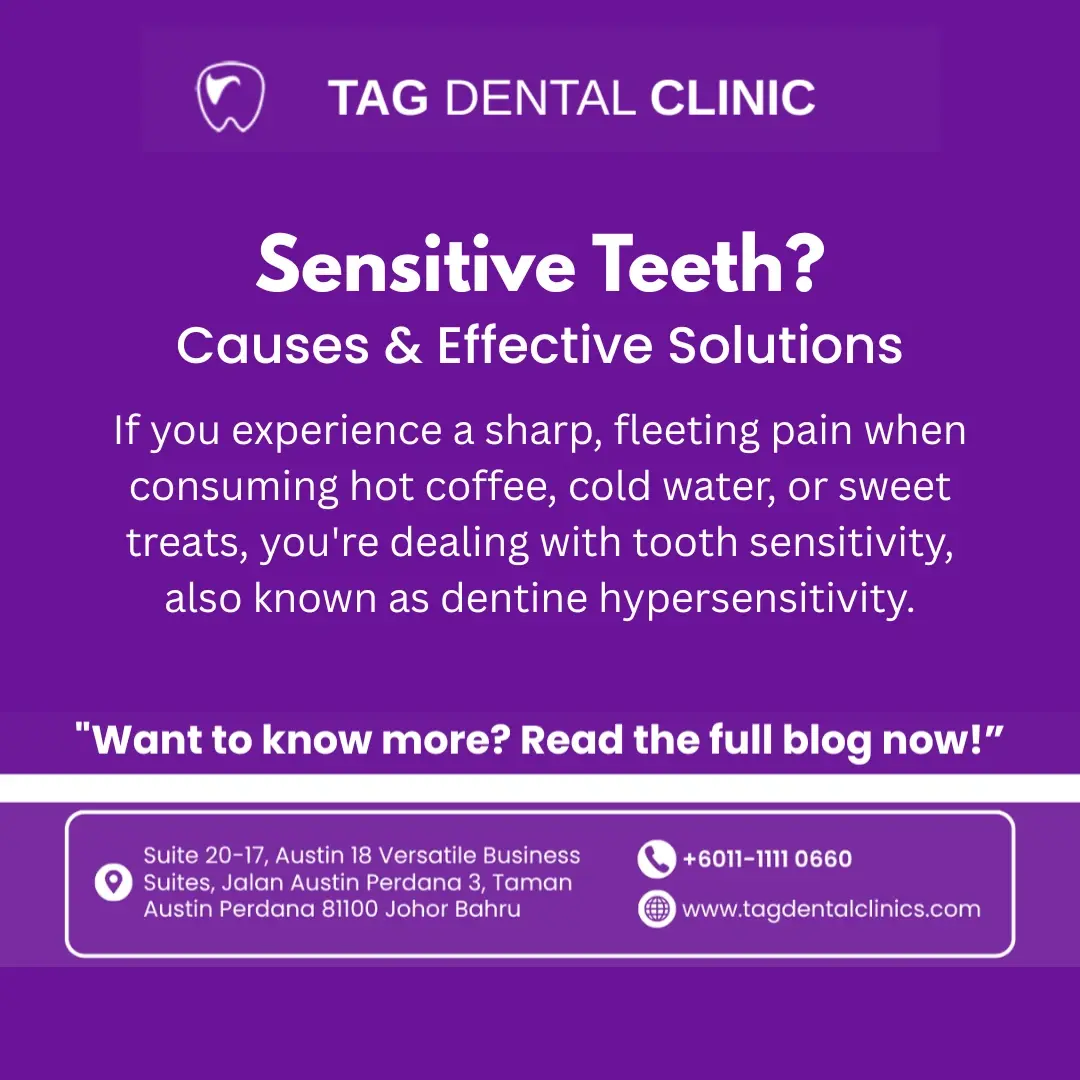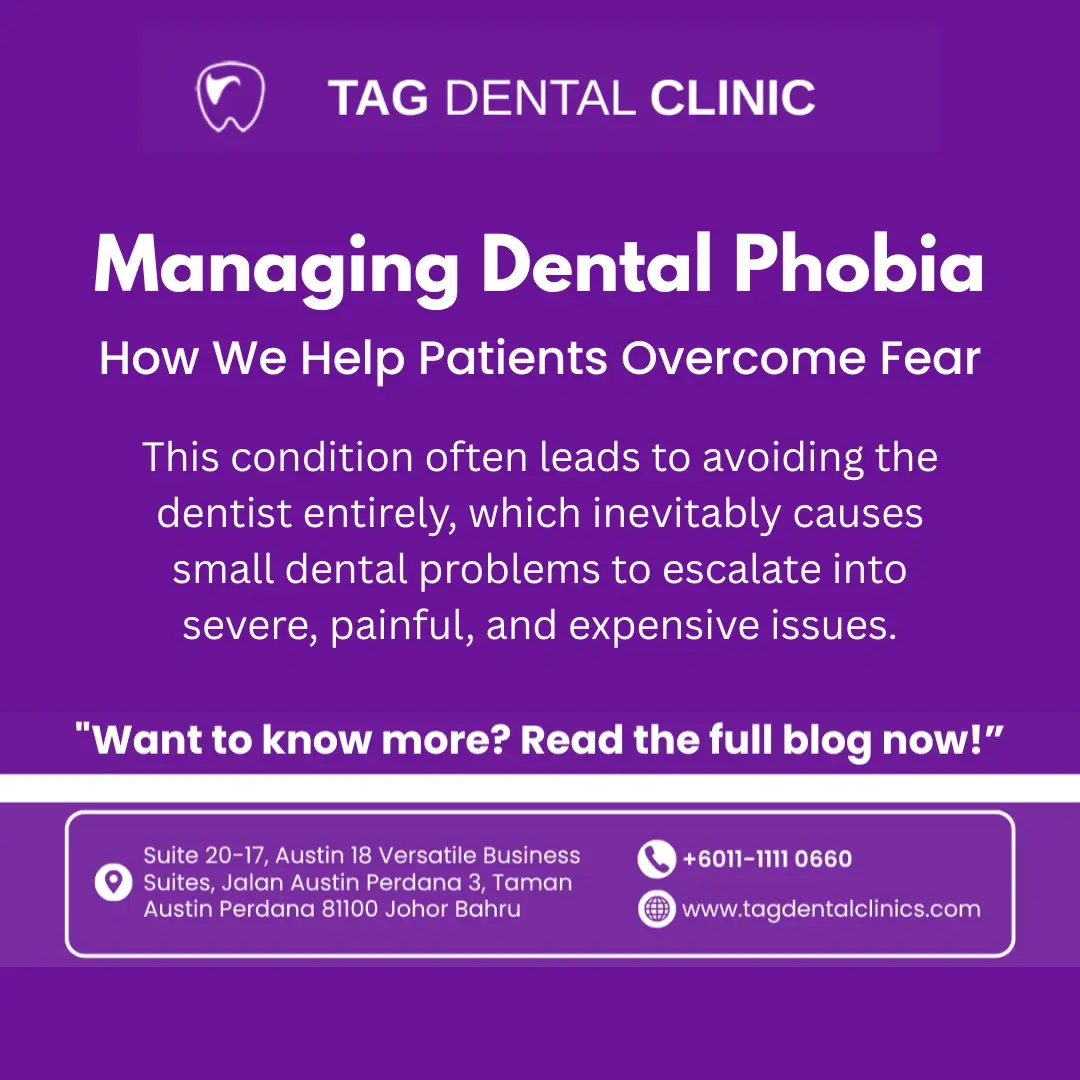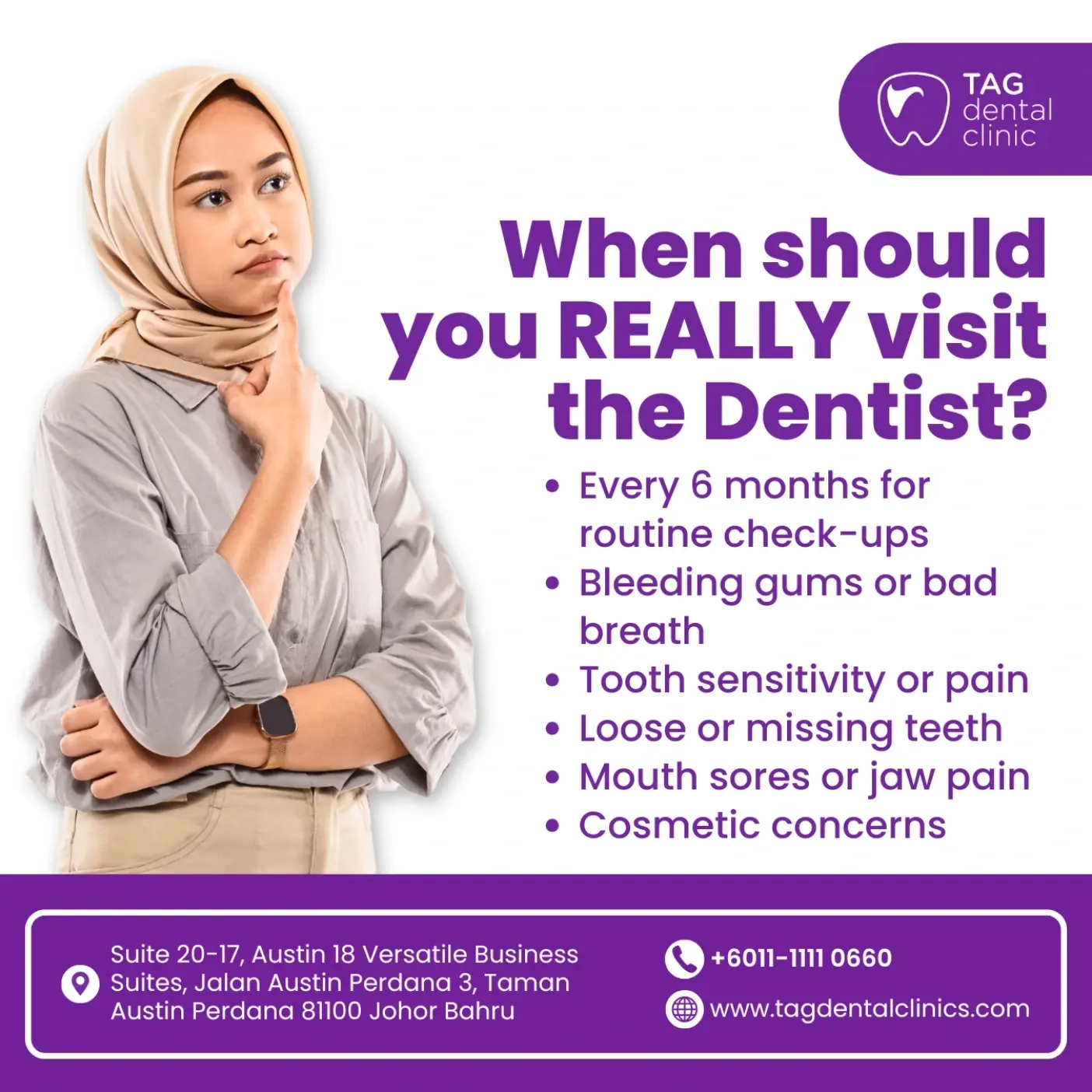Teeth Whitening for Smokers & Coffee Lovers: Strategies That Work at TAG Dental Johor Bahru: Strategies That Work at TAG Dental Johor Bahru
Table Of Content

Why Smokers and Heavy Coffee Drinkers Stain Faster and Deeper
If your teeth are constantly battling the dulling effects of nicotine and caffeine, you are dealing with a type of discoloration that is more persistent than typical surface stains. To beat the stains, you must first understand the culprits.
1. The Chemistry of Coffee Stains
Coffee contains high concentrations of compounds called Tannins and Chromogens.
- Chromogens: Highly pigmented molecules that cling stubbornly to the porous surface of your tooth enamel.
- Tannins: These compounds act as a magnet, increasing the ability of the chromogens to stick and penetrate the enamel.
- Acidity: Coffee is highly acidic. Acidity temporarily softens and weakens the enamel, making the tooth structure more susceptible to staining pigments, which can then set deeper into the tooth over time.
2. The Persistence of Tobacco Stains
Tobacco stains are considered the most difficult to remove because they involve two primary, highly adhesive components:
- Nicotine: While clear initially, nicotine turns yellow upon contact with oxygen and saliva.
- Tar: This dark, sticky substance clings fiercely to the enamel and can penetrate deep into the dentin, creating stubborn, intrinsic brown-to-black discoloration that over-the-counter products simply cannot reach.
These deep, long-term stains require professional intervention that goes beyond surface cleaning.
Customized Whitening Plans: Strategies That Work

For individuals with lifestyle staining from coffee or tobacco, a generic, one-size-fits-all whitening kit is often ineffective. At TAG Dental in Johor Bahru, we recommend a multi-step, professional approach.
Step 1: Professional Deep Cleaning (The Foundation)
Before any whitening agent is applied, the teeth must be free of plaque and calculus. Professional dental cleaning not only removes the surface-level plaque but also utilizes specialized techniques like air polishing to eliminate significant extrinsic (surface) stains caused by coffee and tobacco. This ensures the whitening gel can penetrate the enamel evenly and deeply.
Step 2: The In-Office Power Whitening Session (The Booster)
For heavy stains, in-office professional whitening is the gold standard. We use a high-concentration peroxide gel (often 25-40%) that is powerful enough to break down the deep, ingrained organic compounds left by tar and tannins. The process is performed under controlled conditions with protective barriers for your gums, providing the fastest, most dramatic results possible in a single session.
Step 3: Custom Take-Home Maintenance Kits (The Sustainer)
The most critical tool for coffee drinkers and smokers is the custom-fitted take-home tray.
- Precision Fit: Unlike drugstore strips, our trays are molded specifically to your teeth, ensuring the professional-grade gel (typically Carbamide Peroxide) is distributed evenly and stays in contact with the enamel, not leaking onto your gums.
- Maintenance Schedule: These kits allow you to perform touch-up whitening at home on a schedule determined by your dentist—typically a few times every few months—to counter the ongoing staining effects of your habits.
Step 4: Alternative Cosmetic Solutions for Resistant Stains
In rare cases where deep, intrinsic stains are too severe to respond fully to even professional whitening, other cosmetic options may be explored at TAG Dental, such as:
- Dental Bonding: Applying a tooth-colored resin to mask specific areas of discoloration.
- Porcelain Veneers: Placing thin, custom-made porcelain shells over the front surface of the teeth to create a permanently bright, stain-resistant smile.
The Limits and Realistic Expectations

While modern dentistry can achieve incredible results, it is essential to set realistic expectations, especially if you plan to continue smoking or drinking staining beverages.
- Intrinsic Stain Limit: Teeth have a natural limit to how white they can become. Deep, intrinsic stains—those that have penetrated the dentin over many years of tobacco use—may not achieve the brightest, "Hollywood white" shade but will be significantly lighter and brighter.
- Maintenance is Non-Negotiable: For a heavy coffee drinker, a touch-up session or maintenance with custom trays will be required more frequently than for someone who only drinks water. The whitening is not a one-time fix against a constant source of staining.
- Health Over Aesthetics: Quitting smoking is the single most effective action to protect not only your whitening results but, more importantly, your long-term gum health and overall well-being. Whitening does not reverse the damage smoking causes to gums and bone structure.
Daily Lifestyle Tips to Preserve Your Bright Smile

To protect your investment in professional whitening, you must adopt defensive daily habits:
- Brush Three Times Daily: Brushing three times daily (especially after breakfast and any time after consuming coffee or smoking) helps immediately remove surface pigments before they set. Use a soft-bristled brush.
- Rinse Immediately: After having coffee, tea, red wine, or smoking, immediately rinse your mouth with water to dilute the pigments and neutralize acidity.
- Use a Straw: When drinking cold beverages like iced coffee, always use a straw to minimize direct contact of the liquid with the front surfaces of your teeth.
- Wait to Brush After Acid: If you had hot coffee, wait at least 30 minutes before brushing. Brushing immediately after consuming acidic drinks can abrade the temporarily softened enamel.
- Maintain Regular Professional Cleanings: Smokers and heavy coffee drinkers should consider scheduling professional dental cleanings at TAG Dental more frequently than the standard twice-yearly appointment to proactively remove surface stains.
Frequently Asked Questions (FAQs) About Whitening and Stains
%20About%20Whitening%20and%20Stains.webp)
1. How long after professional whitening should I avoid coffee? We recommend avoiding all staining food and drink (the "White Diet") for at least 48 hours after your in-office whitening session, as the teeth are highly porous and susceptible to staining during this time.
2. Is a whitening toothpaste effective for heavy coffee stains? Whitening toothpastes are only effective for removing mild extrinsic surface stains. They cannot penetrate and break down the deep, years-old stains caused by tobacco and heavy coffee consumption.
3. Does using an electric toothbrush help with stains? Yes. Electric toothbrushes provide a more consistent and thorough cleaning action, which is highly effective at lifting and preventing the buildup of surface stains from coffee and tea.
4. Can I whiten my teeth if I have gum disease? No. Any underlying dental issues, especially gum disease or severe sensitivity, must be treated and resolved before any whitening procedure begins.
5. Is the sensitivity after whitening permanent? No. Any increased tooth sensitivity felt after a whitening session is temporary and usually subsides within 12 to 36 hours. Using a desensitizing toothpaste can help manage it.
6. Does adding milk to coffee help prevent staining? Yes. The casein protein found in milk and cream can bind to tannins in the coffee, slightly reducing the ability of the staining pigments to adhere to the enamel.
7. How often do smokers need a whitening touch-up? This varies, but heavy smokers may need a touch-up treatment with their custom trays every 3 to 6 months to maintain their bright results.
8. Is laser whitening different from in-office whitening? "Laser whitening" is often a marketing term for light-activated whitening. The light or laser is used to accelerate the chemical reaction of the peroxide gel, making the treatment faster and more effective than non-light activated methods.
9. Can I whiten teeth that have crowns or fillings? Whitening agents only work on natural tooth structure. Existing crowns, veneers, or white fillings will not change color, meaning they may need to be replaced after whitening to match your new, brighter smile.
10. What is the very first step for a smoker to whiten their teeth? The first step is a professional consultation and check-up at TAG Dental to ensure your teeth and gums are healthy enough for the whitening process.
A bright, confident smile and a daily ritual of coffee or the occasional cigarette can coexist—but it requires a proactive, professional strategy. At TAG Dental in Johor Bahru, we specialize in tackling the toughest stains with customized whitening plans that deliver results. Stop settling for dull, stained teeth. Contact us today to schedule your consultation and begin your journey to a brilliant smile that lasts.





